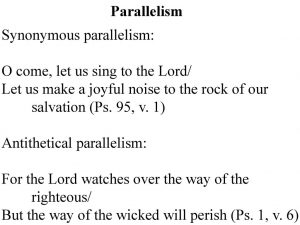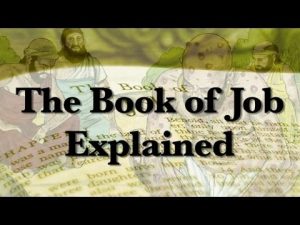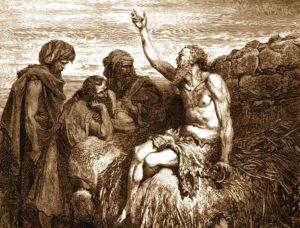
Shownotes
Wisdom-Trek / Creating a Legacy
Welcome to Day 1356 of our Wisdom-Trek, and thank you for joining me.
I am Guthrie Chamberlain, Your Guide to Wisdom
Mastering the Bible – Understanding Hebrew Poetry – Worldview Wednesday
Wisdom - the final frontier to true knowledge. Welcome to Wisdom-Trek where our mission is to create a legacy of wisdom, to seek out discernment and insights, and to boldly grow where few have chosen to grow before.
Hello, my friend, I am Guthrie Chamberlain, your captain on our journey to increase wisdom and create a living legacy. Thank you for joining us today as we explore wisdom on our 2nd millennium of podcasts. Today is Day 1356 of our trek, and it is Worldview Wednesday. Creating a Biblical Worldview is essential to have a proper perspective on today’s current events.
To establish a Biblical Worldview, you must have a proper understanding of God and His Word. Our focus for the next several months on Worldview Wednesday is Mastering the Bible, through a series of brief insights. These insights are extracted from a book of the same title from one of today’s most prominent Hebrew Scholars, Dr. Micheal S. Heiser. This book is a collection of insights designed to help you understand the Bible better. When we let the Bible be what it is, we can understand it as the original readers did and as its writers intended. Each week we will explore two insights.
Mastering the Bible – Understanding Hebrew Poetry
Insight Fifty-One: Understanding Hebrew Poetry Is Essential for Interpreting Psalms and Proverbs
When you and I encounter the word “poetry,” we immediately think of something read, sung, or listened to that rhymes. If we studied poetry academically, we’d learn that there’s a lot more to poetry as we know it, but rhyming is our most familiar experience of the concept.
Because we think of poetry this way, it’s hard for us to see why Psalms, Proverbs, and other portions of the Bible are classified as poetry. Like English, a line of Hebrew poetry is broken down into smaller units called cola. “Mary had a little lamb // its fleece was white as snow” is a complete line made up of two parts (two cola). That’s really where the similarity ends. The fundamental difference in Hebrew poetry and what we think of with respect to that term is that Hebrew poetry doesn’t rhyme in sound. It rhymes in thought.
This concept of “thought rhyming” is called parallelism. In simplest terms, a line of Hebrew poetry (e.g., Psalm 2:4) can begin with a colon (“The one who rules in heaven laughs”), which is followed by another colon that expresses a similar thought (“The Lord scoffs at them”). The relationship between the two cola is the important item for interpretation. The second colon corresponds to the first in some way. The second element advances the thought of the first. There is a symmetrical relationship in the thought expressed.
This “thought rhyming” can be accomplished in a variety of ways. Sometimes colon two is virtually synonymous with colon one. Perhaps only the vocabulary varies. The example from Psalm 2:4 above fits that description. Sometimes a series of cola will build to a climactic conclusion. On other occasions, the second colon expresses the thought of the first in an inverted way. For example, Psalm 1:6 says,
(colon l): For the Lord watches over the path of the godly,
(colon 2): but the path of the wicked leads to destruction.

The two thoughts here are consistent with one another, but they are like two sides of a coin. By definition, if the wicked leads to destruction, that fate will not befall the righteous.
Grasping the range of possible ‘‘thought rhyme” strategies used in Psalms and Proverbs takes time, close reading, and careful thought. Study Bibles and other books help by providing brief introductions to the techniques with examples. Making an effort to learn about parallelism will provide insight into your reading of those books and help you avoid drawing poor conclusions about interpretation.
Insight Fifty-Two: The Book of Job Is Not Primarily about Suffering

The “Satan” (i.e., “the adversary”) in Job is a member of God’s divine court, not the devil of the New Testament. When this divine figure reported to God in Job 1, God asked him, “Where have you come from?” The Satan reported that he had been “I have been patrolling the earth, watching everything that’s going on.” (Job 1:7). So “The Satan’s” job was to see if people were obedient to God or not. God took the occasion of the report to brag on Job. God asks, The Satan in Job 1:8, “Have you noticed my servant Job? He is the finest man in all the earth. He is blameless—a man of complete integrity. He fears God and stays away from evil.”
The adversary’s answer sets the rest of the book in motion and with it the famous suffering of Job. The adversary has an ax to grind and gets uppity. He challenges God’s reading of the situation, "Yes, but Job has good reason to fear God. You have always put a wall of protection around him and his home and his property. You have made him prosper in everything he does. Look how rich he is! But reach out and take away everything he has, and he will surely curse you to your face!" (Job 1:9-11). In essence,
the adversary challenges God’s omniscience and authority. In essence, “The Satan” implies that God doesn’t really know Job, and since he doesn’t, he has no right to praise him.
This is a challenge that God cannot let pass. God cannot just destroy the adversary for his arrogance. That would only eliminate the accuser, not answer the challenge. God’s reputation needs vindication. That is what the book of Job is really about.
The book of Job devotes a lot of space to presenting and evaluating a range of human responses to why Job is suffering and, ultimately, why the righteous suffer. The book doesn’t offer a resolution to this last question. The “answer” comes in the appearance of God in the whirlwind. Job sees clearly that he is not God and has to be silent. But consider the book’s conclusion. Job did not sin in his suffering. He does not curse God. In other words, his character shows that God was correct, and the adversary was wrong. Job is, therefore, rewarded abundantly by God (Job 42:10-17). Although readers don’t get an answer to why the righteous suffer, they know that, at least, in this case, it was to vindicate God. He does see, and he is sovereign. Like Job, we must trust God is good and knows what he is doing.
That will conclude this week’s lesson on another two insights from Dr. Heiser’s book Mastering the Bible. Next Worldview Wednesday, we will continue with two additional insights. I believe you will find each Worldview Wednesday an interesting topic to consider as we build our Biblical Worldview.
Tomorrow we will continue with our 3-minute humor nugget that will provide you with a bit of cheer and help you to lighten up and live a rich and satisfying life. So encourage your friends and family to join us and then come along with us tomorrow for another day of our Wisdom-Trek, Creating a Legacy.

If you would like to listen to any of our past 1355 treks or read the Wisdom Journal, they are available at Wisdom-Trek.com. I encourage you to subscribe to Wisdom-Trek on your favorite podcast player so that each day’s trek will be downloaded automatically.
Thank you for allowing me to be your guide, mentor, and most importantly, your friend as I serve you through the Wisdom-Trek podcast and journal.
As we take this trek together, let us always:
- Live Abundantly (Fully)
- Love Unconditionally
- Listen Intentionally
- Learn Continuously
- Lend to others Generously
- Lead with Integrity
- Leave a Living Legacy Each Day
I am Guthrie Chamberlain reminding you to Keep Moving Forward, Enjoy Your Journey, and Create a Great Day Everyday! See you tomorrow!